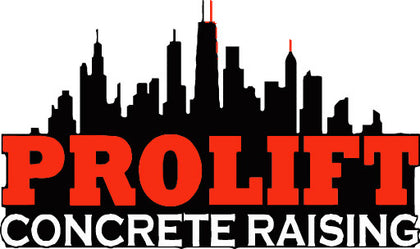Concrete Sealing

Protect Your Concrete Today!
Over time, concrete is susceptible to deterioration from exposure to harsh weather, salt, dirt, and various contaminants. Sealing your concrete can shield it from these damaging elements and minimize the need for costly repairs down the line.
What is Concrete Sealing?
Concrete sealing is the process of applying a protective coating or sealer to concrete surfaces. This sealer forms a barrier on the surface, preventing water, stains, and other elements from penetrating and damaging the concrete. It can enhance the appearance of the concrete, improve durability, and increase resistance to wear and tear.
Why Should Seal My Concrete?
Your concrete undergoes constant exposure to elements like salt, cars, water, snow, and oil, subjecting it to rigorous testing. Over time, this exposure can cause discoloration, flaking, and leave you with limited options to address the damage. Just as changing the oil in your car is essential for maintenance, sealing your concrete plays a vital role in its upkeep.
When left unsealed, the porous surface of concrete can absorb liquids like water and oil, resulting in surface pitting, staining, and flaking. By sealing your concrete, you create a protective barrier that prevents these issues and extends the lifespan of your surface. Don't allow your concrete to suffer the consequences of neglect - prioritize sealing to maintain its appearance and durability.
How It Works

Step 1: Clean
We begin by cleaning the concrete surface of any lose debris. Once removed, the surface is washed and left to dry.

Step 2: Seal
After the concrete surface has dried, we apply a layer of sealer using a roller or sprayer.

Step 3: Cure
The sealer has been laid and now its time to dry. The curing process can take up to 48 hours.
When Should I Seal My Concrete?
To ensure proper adhesion and penetration into the concrete, it is crucial to apply the sealer under suitable conditions. It is important to note that air temperatures should not drop below 45°F (7°C) for a continuous 24-hour period to allow for proper curing. Before applying the sealer, the surface needs to be thoroughly cleaned and dried.
If you are considering sealing newly poured concrete for the first time, it is advisable to allow at least a month for the concrete to fully cure and dispel any moisture present. This timeframe will ensure that the concrete is ready for the sealer application, promoting better results and long-lasting protection.
The Benefits of Sealing Your Concrete
Sealing your concrete offers benefits that go beyond just protection. Here are some benefits of using a sealer:
- Extended lifespan: Sealing your concrete provides a protective barrier that shields it from the damaging effects of weather, chemicals, and other contaminants. This protection helps prevent cracks, spalling, and deterioration, ultimately extending the life of your concrete.
- Restored color and appearance: Over time, concrete can become discolored due to UV rays, dirt, and other factors. Sealing your concrete helps restore its original color and enhances its overall appearance, making it look new again.
- Easy maintenance: Sealed concrete is much easier to maintain and clean. The sealant creates a smooth and non-porous surface that resists stains and makes it effortless to remove dirt, oil, or other spills. This saves you time and effort in cleaning and ensures that your concrete stays presentable.
- Non-slip surface: Depending on your specific needs, you can add grit or other additives to the sealer to create a non-slip surface. This increases safety, especially in areas prone to water exposure or foot traffic.
- Cost savings: Regularly maintaining your concrete by sealing it helps prevent major issues down the line, such as cracks, spalling, or the need for complete replacement. By investing in timely and affordable sealing, you can avoid costly resurfacing repairs, saving you money in the long run.
Applying a sealer to your concrete protects it, restores its appearance, simplifies maintenance, adds safety features, and saves you from expensive repairs or replacements. It's a smart investment that ensures your concrete stays in great condition for years to come.
Learn More About Concrete Sealing
How often should I seal my concrete?
Concrete should be sealed every 3 to 5 years. If you are using a lower grade sealer, then every
other year.
Can my concrete be sealed if there is rain in the forecast?
We do not recommend having concrete sealed when rain is in the forecast. Should rain impact your scheduled service day, our team will promptly reach out and reschedule it for the first available date.
Does my concrete need to be cleaned prior to sealing?
The concrete surface should be swept, washed and dried before applying sealer. All furniture and other objects should also be removed.
How long before I can use my concrete after it has been sealed?
The sealer will need time to fully cure. This can take up to 48 hours depending on sun exposure and temperature. Once the sealer is cured and tack free, it can be used.





